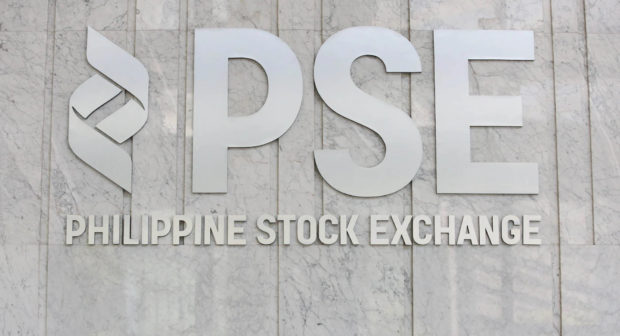MANILA, Philippines — The Philippine Stock Exchange (PSE) Index has entered the dreaded bear market territory after plummeting over 200 points on Tuesday, while the peso fell to a new record low on mounting inflation and recession risks.
A bear market is typically called after prices decline by 20 percent from the recent peak.
On Tuesday, the benchmark measure fell as much as 4.7 percent to an intraday low of 5,962.17 before ending the session at 6,020.07, down nearly 240 points or 3.83 percent. The PSEi was in a bear market at the 6,041 level.
Currency trading mirrored the fall in equities with the Philippine peso grazing the 59:$1 threshold before closing at P58.99 against the greenback, setting a new low.
Philippine financial markets reopened on Tuesday after trading was suspended for a day due to Supertyphoon “Karding,” whose damage to the critical agricultural sector could exacerbate the inflation contagion.
More pain ahead
Veteran stock market analyst Jonathan Ravelas, who warned of deteriorating financial markets early this year, said investors should brace for more pain.
“This could be just the beginning of further declines. Initially, we are looking at 5,500 to 5,700 for the PSEi as the first level,” Ravelas, financial strategy consultant at e-Methods for Business Management Corp., told the Inquirer.
“The hunt for the red October is there,” he added, in reference to the popular Tom Clancy novel and film.
While many first-time pandemic investors have yet to experience a bear market, Ravelas said seasoned participants know these conditions are potential buying opportunities.
“Bear market is really just a technical term. From an investor standpoint, this is your buying opportunity,” Ravelas said.
He advised investors to position in credible dividend-paying companies with attractive valuations.
On Tuesday, Asian Development Bank president Masatsugu Asakawa said the US dollar was excepted to remain strong against regional currencies.
This is “mainly due to the very aggressive monetary policy tightening by authorities in advanced economies, notably the United States Federal Reserve,” Asakawa said.
“Of course, compared to the days of the Asian financial crisis of 1997-1998 [which saw an Asian currencies debacle], the current account balance has improved and foreign exchange reserves have [increased] sufficiently,” he added. “Resilience of the system as a whole against any financial turbulence like now has been enhanced.”
Meanwhile, Alfred Benjamin “Ian” Garcia, AB Captal Securities Inc. assistant manager, sales and marketing, expected bargain hunters to step in below the 6,000 level for the PSEi, citing “fair” valuations.
“We might see some scenarios where we overshoot the 5,800 level but buying interest should be strong there,” Garcia told the Inquirer.
Trading volume surged to 2.18 billion shares valued at P20.72 billion, with roughly half the amount coming from the block sale of 8990 Holdings Inc. shares.
All PSE subsectors closed in the red, led by the losses from holding firms and financials, down 4.58 percent and 4.29 percent, respectively.
Property also tumbled 3.92 while the industrial, mining and oil and services subsectors saw losses of over 2 percent.
Conglomerate San Miguel Corp. was the top traded stock as it slipped 0.15 percent to P97.50 per share.
It was followed by SM Investments Corp., down 5.57 percent to P763; Ayala Land Inc., down 2.4 percent to P24.40; SM Prime Holdings Inc., down 5.29 percent to P32.25; and International Container Terminal Services Inc., down 0.49 percent to P181 per share.
BDO Unibank Inc. retreated 4.01 percent to P115; Ayala Corp., down 3.74 percent to P670; Bank of the Philippine Islands, down 4.67 percent to P88.85; Universal Robina Corp., down 3.36 percent to P112.20; and PLDT Inc., down 3.83 percent to P1,558 per share.
RELATED STORIES
Peso movement to guide equity investors this week
Peso, shares continue to fall on recession worries
Peso freefall spooks investors
